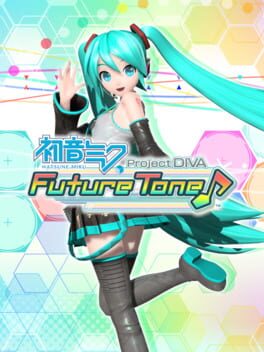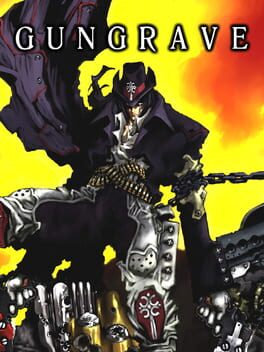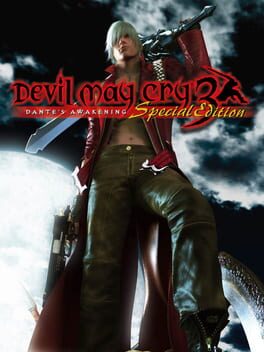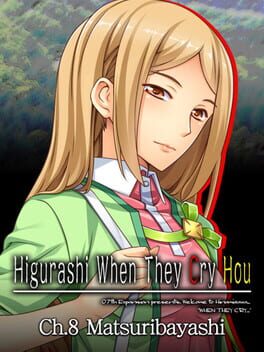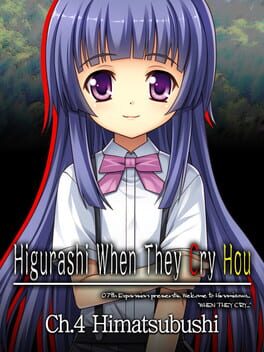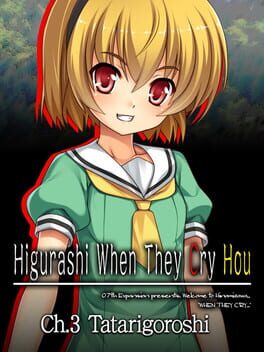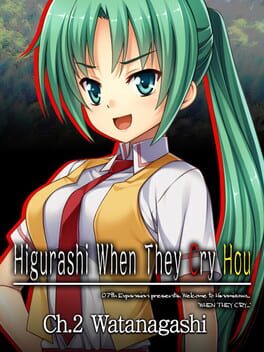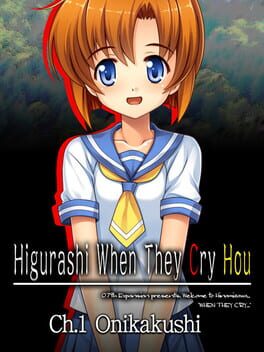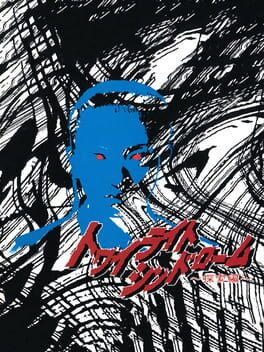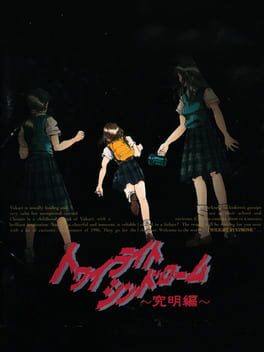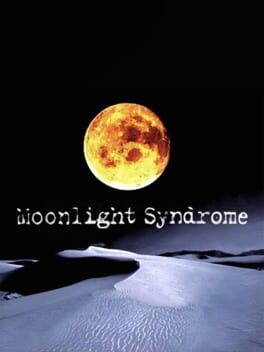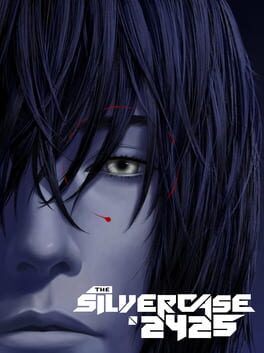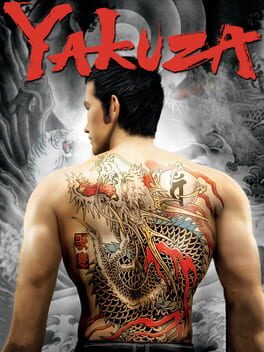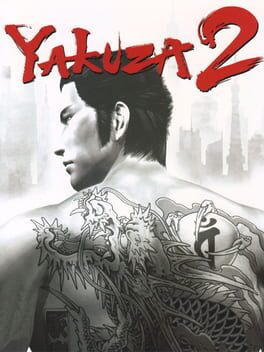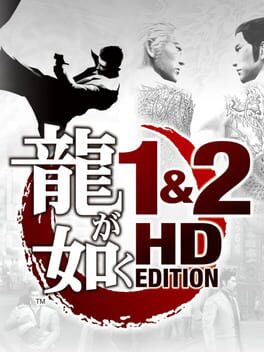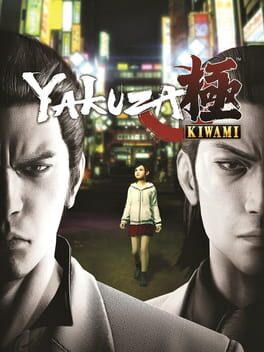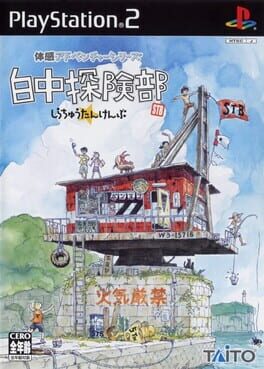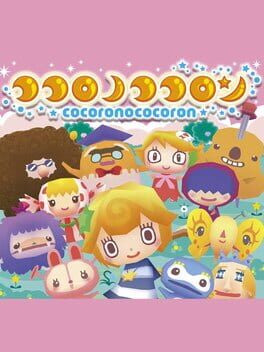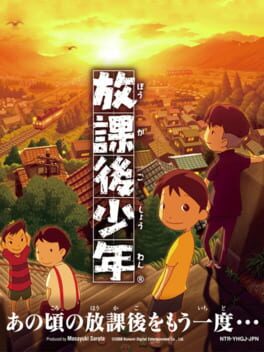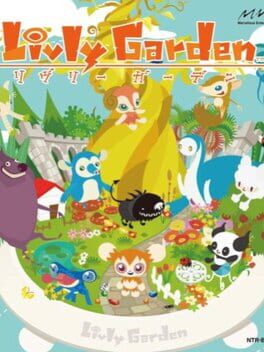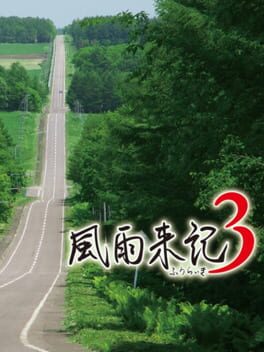number_girl
8 reviews liked by number_girl
(cw for a very brief mention of self-harm and depression)
It seems like a given for disaffectionate weeblings meandering through cyberspace to eventually run afoul of Vocaloid, the siren song of late-2000s otaku culture that refuses to die, and there's no clearer representative for the brand than the poster child of virtual idols, Hatsune Miku. Through over a decade of image reinvention, musical exploration, and incessant irritation, thousands of producers have used the aquamarine automaton as the mouthpiece for pieces ranging from the goofy to the grotesque, shifting and altering the image of the mascot in tune with the work they produce. In a sense, becoming attached to what is, at its most sincere form, an inanimate face for an audio production tool feels odd, strange, dare I say, cringe. Yet here I am, a terminal victim of the brain virus known as emotional bonding, reminded once again that one of the big moments in coming to terms with my identity was discovering Hatsune Miku.
Retracing my steps, the path is obvious: a teenage girl defined by her constant inconsistency, bound by little more than a modulated soundbank, singing songs of isolation, anxiety, self-loathing, intense misanthropy, undying love and occasional lesbianism. Emotionally torn asunder by a yet-unending depression spiral, yours truly could only break as she found someone who was, in no uncertain terms, just like me (for real for real). But tracking the exact point I realized a hyper-femme soundbank was something beyond a passing interest, instead being a key “being” that I find my self drawn to, something that influenced the art I consider worthwhile, something I find relatability in, is… difficult. Confusing.
… And as much as I want to just tie all of my experiences to sitting alone, listening to embarrassing vent pieces written by producers I really need to tell “it’ll be okay”, what stuck with me was always the games; late nights and early mornings spent playing Project Diva F 2nd with a former best friend, where Rolling Girl lead to me opening up to someone about my own history of self-harm; all-night sessions of Future Tone where the first time I came out as trans was backed by Envy Cat Walk, and outed myself to the dulcet tones of 2D Dream Fever. Inherently difficult times, now remembered with fondness, bitterness, regret.
I guess my experience with Vocaloid, and by association the Project Diva games, is less inherently about the gameplay or mechanics of the game (they’re kino, ludo, cracked, etc) and more the way I connect to the music, the characters, the personal recollection every song has with me. Of the 200 songs in Future Sound and Colorful Tone, the grand majority are dug into my mind, a part of my soul encapsulated into memories that refuse to fade despite my growing memory issues and fear of forgetting the past. The way I feel for the songs, the times attached to them, the irreplaceable history I have with Vocaloid and, almost directly, Hatsune Miku… it’s adoration in its clearest form. For all the regrets I have, of the person I am and the media I’m devoted to, I don’t regret how ingrained the funny computer singer woman has become in my life.
Writing this will never be as deep or as coherent as I want; as hyper-personal as I wish I could be with how Vocaloid has affected me and the course of my life, going into it will never not feel a little fake, a little disingenuous. I can only say that this game, this whole franchise, is a source of my fondest memories. It’s priceless to me, without comparison. I fucking love it.
(this ended up having little to do with the game… play Project Diva Future Tone…)
It seems like a given for disaffectionate weeblings meandering through cyberspace to eventually run afoul of Vocaloid, the siren song of late-2000s otaku culture that refuses to die, and there's no clearer representative for the brand than the poster child of virtual idols, Hatsune Miku. Through over a decade of image reinvention, musical exploration, and incessant irritation, thousands of producers have used the aquamarine automaton as the mouthpiece for pieces ranging from the goofy to the grotesque, shifting and altering the image of the mascot in tune with the work they produce. In a sense, becoming attached to what is, at its most sincere form, an inanimate face for an audio production tool feels odd, strange, dare I say, cringe. Yet here I am, a terminal victim of the brain virus known as emotional bonding, reminded once again that one of the big moments in coming to terms with my identity was discovering Hatsune Miku.
Retracing my steps, the path is obvious: a teenage girl defined by her constant inconsistency, bound by little more than a modulated soundbank, singing songs of isolation, anxiety, self-loathing, intense misanthropy, undying love and occasional lesbianism. Emotionally torn asunder by a yet-unending depression spiral, yours truly could only break as she found someone who was, in no uncertain terms, just like me (for real for real). But tracking the exact point I realized a hyper-femme soundbank was something beyond a passing interest, instead being a key “being” that I find my self drawn to, something that influenced the art I consider worthwhile, something I find relatability in, is… difficult. Confusing.
… And as much as I want to just tie all of my experiences to sitting alone, listening to embarrassing vent pieces written by producers I really need to tell “it’ll be okay”, what stuck with me was always the games; late nights and early mornings spent playing Project Diva F 2nd with a former best friend, where Rolling Girl lead to me opening up to someone about my own history of self-harm; all-night sessions of Future Tone where the first time I came out as trans was backed by Envy Cat Walk, and outed myself to the dulcet tones of 2D Dream Fever. Inherently difficult times, now remembered with fondness, bitterness, regret.
I guess my experience with Vocaloid, and by association the Project Diva games, is less inherently about the gameplay or mechanics of the game (they’re kino, ludo, cracked, etc) and more the way I connect to the music, the characters, the personal recollection every song has with me. Of the 200 songs in Future Sound and Colorful Tone, the grand majority are dug into my mind, a part of my soul encapsulated into memories that refuse to fade despite my growing memory issues and fear of forgetting the past. The way I feel for the songs, the times attached to them, the irreplaceable history I have with Vocaloid and, almost directly, Hatsune Miku… it’s adoration in its clearest form. For all the regrets I have, of the person I am and the media I’m devoted to, I don’t regret how ingrained the funny computer singer woman has become in my life.
Writing this will never be as deep or as coherent as I want; as hyper-personal as I wish I could be with how Vocaloid has affected me and the course of my life, going into it will never not feel a little fake, a little disingenuous. I can only say that this game, this whole franchise, is a source of my fondest memories. It’s priceless to me, without comparison. I fucking love it.
(this ended up having little to do with the game… play Project Diva Future Tone…)
Gungrave
2002
This review contains spoilers
As with Minagoroshi, I find Matsuribayashi to be a mixed bag, though a mixed bag by Higurashi's standards is still very good. These last two chapters are parrt of what prevent Higurashi from being a masterpiece for me, but ultimately I still love Higurashi just as much as I would if it were a masterpiece. I doubt even the most ardent of Ryukishi's fans would consider his writing perfect, and enjoying his work requires some acceptance of his imperfections. There are few writers who craft their works with this much love for their characters and this much thought in portraying the messiness of human experience, but there is a lot to accept in order to get to the highpoints. Some things will frustrate you, some things might come off unintentionally goofy, sometimes he overexplains and you want him to just move on already, sometimes he kinda cheats the rules of the mystery genre, etc. But while there are some things that genuinely frustrate me, I kinda love all the weird goofy stuff, all the parts where you feel he might not have been completely sure of what he was doing. The epic final chapter of Matsuribayashi is a point where the flaws and qualities have this weird kind of co-existence. On one hand, we could look at Higurashi's climax as a fantasy, a childish solution to a story that can often feel all too real. This is something Ryukishi concedes to in the Staff Room after the chapter:
"In other words, can you see that in the worlds of Higurashi, anything can be overcome when people talk to each other and help one another? Unfortunately that doesn't happen in reality. Helping each other creates friction, and often times, working alone is a lot simpler. However, we always hope that we can connect with other people and understand each other, so that we can face any difficulty. In that sense, this world is a fantasy."
He goes on to talk about his choice to make Takano the 'enemy' of this chapter, and how it suggests that he failed this worldview. He asks "What kind of ending would be the best outcome following the worldview of Higurashi? Perhaps it's something better than the Matsuribayashi chapter...."
From this perspective, the final chapter of Matsuribayashi is a failure because it fails to resolve the incredibly complex character and thematic conflicts in a believable way. It creates a fantasy of friendship and working together as a kind of spiritual power, a literal rule of the universe. It overcomes the highest of stakes and a vicious enemy. These kids are able to defeat a massive government conspiracy through tricks and traps. It feels much closer to reading a Shonen series than anything else up to this point. As Ryukishi himself admits, it partially comes from him not quite knowing how to resolve the story in a way that truly gives justice to its worldview. I think the other flaw here is residue from Chapter 7, which is that Higurashi just gets a lot BIGGER than it needs to be. Again, the draw of the series is really the character writing, and the conflicts are a lot stronger when they're contained between the characters. Tsumihoroboshi's climax is far fetched as well, but it's EMOTIONALLY believable because the conflict between Keiichi and Rena has been developed so perfectly. The whole chapter feels very true to the actual experience of trying to help a friend that's spiralling. The scenario is undoubtably a little silly, but the feelings are real. That feeling isn't really present here, and that's because the stakes of the conflict have sprawled into this massive conspiracy that exists way beyond the characters.
The other issue is Takano as a villain. This is also an issue in Minagoroshi but it's one which is more relevant here. I think Ryukishi writes himself into a corner with Takano's cartoonish levels of evil. The problem is that he ends Minagoroshi on a scene where Takano massacres an entire village while laughing maniacally, and then spends the opening hours of Matsuribayashi begging for our sympathy. My flaw is not with Ryukishi's worldview that even people who appear 'evil' become that way through trauma, and that there is always a possibility for redemption. The problem is that he writes a villain who is not a bad person in a realistic way. She is a bad person on an epic scale. It would be less of an issue if the final scene of Minagoroshi was cut down, or perhaps not even there at all. The opening hours of Masturibayashi overcompensate by aggressively piling on the tragedy. Unfortunately, it feels nowhere near as earned as the tragedy in previous chapters, and part of that is how it feels like Ryukishi is trying to MAKE us sympathise with her. Obviously all stories utilise some kind of emotional manipulation, but it's very different here to how Shion is written in Meakashi. At the end of that chapter, Ryukishi clearly wants us to cry for Shion. He's obviously directing us to feel that sympathy. For some people it didn't work, and Ryukishi acknowledges in the staff room that some readers won't accept it. For me it worked because we spend that entire chapter locked in Shion's head. It's not just that terrible things happened to her, but that those events took an incredible toll on her mindset and mental health, and that toll is really what we see in that chapter. And even though she suffers plenty in Meakashi, we still see what her day to day life is like - it isn't just an endless parade of suffering. Before asking us to cry for her, Ryukishi carefully builds up that mindset and that experience of overwhelming emotional pain. While Takano is given a psychological motive, the opening hours are more about the exposition - we get an explanation of how Takano became Like This, rather than actually feeling what it would be like to be Takano. It definitely feels a lot more forced in that regard, and it's where I find Ryukishi's portrayal of suffering to be overly indulgent (though I've heard the manga is much worse with this). A lot of these issues wouldn't be as bad if the story just had a smaller scale - if Takano were the culprit, but not someone in charge of a conspiracy to massacre an entire village, if her backstory was given more space to breathe instead of being a series of traumatic bullet points.
So with these issues outlined, we could describe Matsuribayashi as something of a failure. It doesn't quite give justice to the worldview and the emotional struggle that we saw in previous chapters. But if Matsuribayashi is a failure, it is a very enjoyable one. Perhaps a high stakes and action packed climax wasn't the right way to end Higurashi, but for what it is I think Ryukishi does it very well. He manages to keep an impressive balancing act of maintaining nonstop tension for around 5 hours, and while the climax is arguably bloated I found it never got tiring to read. And while there is a kind of childishness in its execution, there's also kind of a delight in the silliness of it all. Part of the point of Higurashi is that these are characters who have had their childhoods robbed from them, and the club games are a form of reclaiming that childhood. As I wrote in my Tsumihoroboshi review, this idea is best executed in the climax of that chapter. Matsuribayashi takes things even further, where the club game techniques are part of why these kids manage to win. It's like the story itself becomes akin to a child's imagination. The characters are often having so much fun that it sometimes feels like the stakes aren't even there, that the win is already sealed. At times, it makes the fight feel less like a fight and more like a victory lap. This is arguably worthy of criticism but I do find it really fun, and it adds to the borderline utopian vision of friendship that Ryukishi presents in this chapter. I can't believe entirely in what he presents here, and part of that is that I don't think he does either, but I still like the fantasy.
Much of what Higurashi's fans value about the series is this feeling that it breaks through being a story and becomes way too fucking real. It's not necessarily that the plotline itself is realistic, but that there are moments where Ryukishi captures something that feels so true to traumatic experience that it becomes overwhelming to read. Matsuribayashi has none of that 'realness'. It's pure story, pure fantasy. But what Ryukishi does maintain is a love for the characters, and a joy in just seeing them interact, to find beauty in the silly things that supposedly 'don't matter'. And so even though Ryukishi ultimately failed in some ways, I don't mind. He maintained his love, and I maintained mine.
"In other words, can you see that in the worlds of Higurashi, anything can be overcome when people talk to each other and help one another? Unfortunately that doesn't happen in reality. Helping each other creates friction, and often times, working alone is a lot simpler. However, we always hope that we can connect with other people and understand each other, so that we can face any difficulty. In that sense, this world is a fantasy."
He goes on to talk about his choice to make Takano the 'enemy' of this chapter, and how it suggests that he failed this worldview. He asks "What kind of ending would be the best outcome following the worldview of Higurashi? Perhaps it's something better than the Matsuribayashi chapter...."
From this perspective, the final chapter of Matsuribayashi is a failure because it fails to resolve the incredibly complex character and thematic conflicts in a believable way. It creates a fantasy of friendship and working together as a kind of spiritual power, a literal rule of the universe. It overcomes the highest of stakes and a vicious enemy. These kids are able to defeat a massive government conspiracy through tricks and traps. It feels much closer to reading a Shonen series than anything else up to this point. As Ryukishi himself admits, it partially comes from him not quite knowing how to resolve the story in a way that truly gives justice to its worldview. I think the other flaw here is residue from Chapter 7, which is that Higurashi just gets a lot BIGGER than it needs to be. Again, the draw of the series is really the character writing, and the conflicts are a lot stronger when they're contained between the characters. Tsumihoroboshi's climax is far fetched as well, but it's EMOTIONALLY believable because the conflict between Keiichi and Rena has been developed so perfectly. The whole chapter feels very true to the actual experience of trying to help a friend that's spiralling. The scenario is undoubtably a little silly, but the feelings are real. That feeling isn't really present here, and that's because the stakes of the conflict have sprawled into this massive conspiracy that exists way beyond the characters.
The other issue is Takano as a villain. This is also an issue in Minagoroshi but it's one which is more relevant here. I think Ryukishi writes himself into a corner with Takano's cartoonish levels of evil. The problem is that he ends Minagoroshi on a scene where Takano massacres an entire village while laughing maniacally, and then spends the opening hours of Matsuribayashi begging for our sympathy. My flaw is not with Ryukishi's worldview that even people who appear 'evil' become that way through trauma, and that there is always a possibility for redemption. The problem is that he writes a villain who is not a bad person in a realistic way. She is a bad person on an epic scale. It would be less of an issue if the final scene of Minagoroshi was cut down, or perhaps not even there at all. The opening hours of Masturibayashi overcompensate by aggressively piling on the tragedy. Unfortunately, it feels nowhere near as earned as the tragedy in previous chapters, and part of that is how it feels like Ryukishi is trying to MAKE us sympathise with her. Obviously all stories utilise some kind of emotional manipulation, but it's very different here to how Shion is written in Meakashi. At the end of that chapter, Ryukishi clearly wants us to cry for Shion. He's obviously directing us to feel that sympathy. For some people it didn't work, and Ryukishi acknowledges in the staff room that some readers won't accept it. For me it worked because we spend that entire chapter locked in Shion's head. It's not just that terrible things happened to her, but that those events took an incredible toll on her mindset and mental health, and that toll is really what we see in that chapter. And even though she suffers plenty in Meakashi, we still see what her day to day life is like - it isn't just an endless parade of suffering. Before asking us to cry for her, Ryukishi carefully builds up that mindset and that experience of overwhelming emotional pain. While Takano is given a psychological motive, the opening hours are more about the exposition - we get an explanation of how Takano became Like This, rather than actually feeling what it would be like to be Takano. It definitely feels a lot more forced in that regard, and it's where I find Ryukishi's portrayal of suffering to be overly indulgent (though I've heard the manga is much worse with this). A lot of these issues wouldn't be as bad if the story just had a smaller scale - if Takano were the culprit, but not someone in charge of a conspiracy to massacre an entire village, if her backstory was given more space to breathe instead of being a series of traumatic bullet points.
So with these issues outlined, we could describe Matsuribayashi as something of a failure. It doesn't quite give justice to the worldview and the emotional struggle that we saw in previous chapters. But if Matsuribayashi is a failure, it is a very enjoyable one. Perhaps a high stakes and action packed climax wasn't the right way to end Higurashi, but for what it is I think Ryukishi does it very well. He manages to keep an impressive balancing act of maintaining nonstop tension for around 5 hours, and while the climax is arguably bloated I found it never got tiring to read. And while there is a kind of childishness in its execution, there's also kind of a delight in the silliness of it all. Part of the point of Higurashi is that these are characters who have had their childhoods robbed from them, and the club games are a form of reclaiming that childhood. As I wrote in my Tsumihoroboshi review, this idea is best executed in the climax of that chapter. Matsuribayashi takes things even further, where the club game techniques are part of why these kids manage to win. It's like the story itself becomes akin to a child's imagination. The characters are often having so much fun that it sometimes feels like the stakes aren't even there, that the win is already sealed. At times, it makes the fight feel less like a fight and more like a victory lap. This is arguably worthy of criticism but I do find it really fun, and it adds to the borderline utopian vision of friendship that Ryukishi presents in this chapter. I can't believe entirely in what he presents here, and part of that is that I don't think he does either, but I still like the fantasy.
Much of what Higurashi's fans value about the series is this feeling that it breaks through being a story and becomes way too fucking real. It's not necessarily that the plotline itself is realistic, but that there are moments where Ryukishi captures something that feels so true to traumatic experience that it becomes overwhelming to read. Matsuribayashi has none of that 'realness'. It's pure story, pure fantasy. But what Ryukishi does maintain is a love for the characters, and a joy in just seeing them interact, to find beauty in the silly things that supposedly 'don't matter'. And so even though Ryukishi ultimately failed in some ways, I don't mind. He maintained his love, and I maintained mine.
Himatsubushi suffers a little from basically being a side-story, but this chapter is still one of the more interesting ones in terms of Higurashi’s politics. The dam protest can be mistaken as something that adds to Hinamizawa’s darkness and closed-off mentality, but as the series goes on it becomes clear that Ryukishi takes this backstory a lot more seriously than that. One of his strengths as a writer is that he always puts thought into writing about sensitive topics, unlike some of his contemporaries who use them as easy shock value. In this chapter, it becomes clear that the dam protests and the militant tactics used in them were ultimately a necessity. One of the best scenes in the chapter is Akasaka being asked by Rika about what he thinks they should do if the protests are morally wrong. His struggle to respond is pretty revealing. While he’s not the most interesting character, the chapter develops a good conflict of him having to confront his own morality. One thing I like about Higurashi’s portrayal of police is that even when cop characters are likeable as individuals they still maintain their role in a corrupt system. I like how Akasaka is given a stereotypically moral task of resolving a kidnapping, but finds that even this leaves him complicit in a greater structural issue that his role as a police officer requires perpetuating. Since there’s no moment where he actually needs to get his hands dirty the conflict doesn’t resolve in the most interesting way - if the chapter were a full-length one there might have been more opportunity to build up this moral conflict into something more impactful. The real highlight of the chapter is Rika, particularly the haunting scene where she predicts the future up to her own death. While this chapter doesn’t reach the emotional highs of the previous three, this might be the most compelling scene of the question arcs in terms of mystery and atmosphere. The difference in Rika’s characterisation compared to the other three question arcs’ use of their focus characters is that we remain somewhat distanced from Rika - she’s made more complex, but there are far more questions than answers about her character, making her somewhat inexplicable. You also get a lot of great material in the TIPS, to the point that the TIPS might be superior to the main chapter. I really love the exploration of Rika’s mother as someone who is not directly abusive (from my memory anyway) but who clearly holds her daughter in contempt. Rika’s ominous monologues are another excellent layer of mystery to her character. Overall the chapter is the least impactful of the question arcs and it being written as a short addition while Ryukishi was struggling with Meakashi does show, but these qualities make it a worthwhile addition to the series.
This review contains spoilers
Tatarigoroshi is the bleakest Higurashi chapter and its most effective tragedy. It’s driven by intense anger at institutional failures and the resulting inability to solve problems that nobody should have to take care of on their own. It’s driven by the fear that there is nothing you can do to resolve someone’s suffering. The argument between Keiichi, Mion and Rena in the classroom is surely one of Higurashi’s most painful scenes because it shows the breakdown of friendship in terms that are all too real. This scene is especially awful because none of the characters are outright wrong. Mion and Rena are right to argue that this isn’t a burden that should be placed on the responsibility of some teenagers, but Keiichi is also right to resist the idea that the only option is to wait and hope things should get better. The characters hurt each other, not over murderous plots or potential demonic possessions, but because they are in a situation that none of them can emotionally handle. Satoko’s characterisation is excellently written as well - while this is a story written from an outsider’s perspective of abuse, it’s one where the victim is written with an extensive amount of interiority, helped by her being a character who we already know. Ryukishi writes in a difficult zone where Satoko is an ‘imperfect’ victim who makes major mistakes without falling into the trap of victim blaming - instead he shows that victims’ relationship to their abusers is motivated by a lot of complex psychological factors which cannot be quickly resolved. Once again he allows you to understand why characters make the decisions they do, even if they’re the ‘wrong’ ones.
The most interesting characterisation in the chapter is of Keiichi, who becomes a more interesting protagonist with each arc. We have another synthesis of the loving Keiichi with the paranoid, murderous Keiichi. I think this episode is one of the most interesting to look at how love in Higurashi is portrayed. Keiichi’s tragedy in this episode is that he is driven by love for Satoko but he fails to actually understand her. Part of his motive for murdering Teppei is that he believes things can immediately go back to the way they were. This is a case where his innocence fails him - he has very little idea about the reality of trauma and PTSD and how Satoko is not going to instantly revert back to how she was before Teppei returned. Again, this is another case in Higurashi of the ‘wrong’ thoughts and decisions being understandable ones in the context of Keiichi being a dumb kid. He is generally very misguided and never really takes into account what Satoko is actually feeling. So when I say Keiichi fails to empathise with the other characters in this episode it’s not about him being malicious or without love, but more that he is limited by his own point of view. I think the turmoil of experiencing love without a true understanding of the other is one of the strongest themes across Ryukishi’s entire work (particularly Umineko) and this chapter is where it’s most apparent in Higurashi.
One of my favourite parts of the chapter is the murder scene, and I want to take note of how this part in particular is given a strong advantage by being in a visual novel. It’s undeniable that Ryukishi stretches things out - the average scenes in Higurashi and Umineko tend to be at least 10 minutes long and often even longer (especially depending on your reading speed). Bad news when you’re reading an Angel Mort scene or when the narration repeats things that have already been explained, but some of the best scenes in his work benefit from the stretching of time. The murder scene is perhaps the one that benefits most from this. Its effectiveness is lost in the anime and manga adaptations where the scene goes by pretty quickly. Not much actually happens in the scene, and these adaptations convey all the essential information, but the more important thing is how slow and stretched out the murder is - the feeling that you’re actually in there with Keiichi. The extended process of waiting out for Teppei, actually committing the murder and trying desperately to bury the body is all written with painful detail, and the scene’s length feels as if it corresponds to how long this process actually takes. The scene after with Keiichi encountering Takano is even better, and probably my pick for the single most tense scene in Higurashi. It nails the feeling of accidentally stumbling on something you really shouldn’t have, and its circumstances being seemingly disconnected from the rest of the chapter make it feel even more unsettling.
The rest of the chapter is more divisive and for fair reason. Tatarigoroshi starts off as the most grounded and least mystery-driven chapter, then it suddenly pivots into being the most bizarre and unexplainable one. I think it works because it maintains the emotional core of the chapter, which is the feeling of absolute helplessness. Here, it seems as if the world itself has completely turned on Keiichi, denying him any agency or for his previous actions to genuinely stick. This section in particular makes me excited for Ryukishi’s work on Silent Hill, as I think this sense of one’s internal fears being externalised through an intensely hostile environment is absolutely nailed here. I enjoyed theorising for this chapter the most because it’s the one with the most room for supernatural explanations. The first two chapters have the issue that the supernatural explanations make everything too clear for it to be an actual mystery, so the question of whether things are supernatural or real is an unbalanced one. There are a few elements of the chapter that I don’t like as much are the introduction of Irie, who has the unfortunate case of being a character who COULD have been great if Ryukishi didn’t feel the need to bring in his perverted comedy. Unfortunately nearly every chapter of Higurashi has at least one scene which is actually painful to get through. The other part I’m not too keen on is the Great Hinamizawa Disaster, which is another swerve that suffers a bit from its lack of connection to the chapter’s thematic core. The finale is undeniably exciting and has a lot of “what the fuck is happening NOW?” value but this chapter would have ended on a much more poignant note if it finished with Satoko running away from Keiichi on the bridge. I don’t mind some contrivances but Keiichi’s survival is also a bit much even by the series’ standards. I will note that there is a reason why this event has to happen in this chapter, so I understand its presence in the context of the story as a whole. I still take issue with the event in general, but that’s to be elaborated upon later.
The most interesting characterisation in the chapter is of Keiichi, who becomes a more interesting protagonist with each arc. We have another synthesis of the loving Keiichi with the paranoid, murderous Keiichi. I think this episode is one of the most interesting to look at how love in Higurashi is portrayed. Keiichi’s tragedy in this episode is that he is driven by love for Satoko but he fails to actually understand her. Part of his motive for murdering Teppei is that he believes things can immediately go back to the way they were. This is a case where his innocence fails him - he has very little idea about the reality of trauma and PTSD and how Satoko is not going to instantly revert back to how she was before Teppei returned. Again, this is another case in Higurashi of the ‘wrong’ thoughts and decisions being understandable ones in the context of Keiichi being a dumb kid. He is generally very misguided and never really takes into account what Satoko is actually feeling. So when I say Keiichi fails to empathise with the other characters in this episode it’s not about him being malicious or without love, but more that he is limited by his own point of view. I think the turmoil of experiencing love without a true understanding of the other is one of the strongest themes across Ryukishi’s entire work (particularly Umineko) and this chapter is where it’s most apparent in Higurashi.
One of my favourite parts of the chapter is the murder scene, and I want to take note of how this part in particular is given a strong advantage by being in a visual novel. It’s undeniable that Ryukishi stretches things out - the average scenes in Higurashi and Umineko tend to be at least 10 minutes long and often even longer (especially depending on your reading speed). Bad news when you’re reading an Angel Mort scene or when the narration repeats things that have already been explained, but some of the best scenes in his work benefit from the stretching of time. The murder scene is perhaps the one that benefits most from this. Its effectiveness is lost in the anime and manga adaptations where the scene goes by pretty quickly. Not much actually happens in the scene, and these adaptations convey all the essential information, but the more important thing is how slow and stretched out the murder is - the feeling that you’re actually in there with Keiichi. The extended process of waiting out for Teppei, actually committing the murder and trying desperately to bury the body is all written with painful detail, and the scene’s length feels as if it corresponds to how long this process actually takes. The scene after with Keiichi encountering Takano is even better, and probably my pick for the single most tense scene in Higurashi. It nails the feeling of accidentally stumbling on something you really shouldn’t have, and its circumstances being seemingly disconnected from the rest of the chapter make it feel even more unsettling.
The rest of the chapter is more divisive and for fair reason. Tatarigoroshi starts off as the most grounded and least mystery-driven chapter, then it suddenly pivots into being the most bizarre and unexplainable one. I think it works because it maintains the emotional core of the chapter, which is the feeling of absolute helplessness. Here, it seems as if the world itself has completely turned on Keiichi, denying him any agency or for his previous actions to genuinely stick. This section in particular makes me excited for Ryukishi’s work on Silent Hill, as I think this sense of one’s internal fears being externalised through an intensely hostile environment is absolutely nailed here. I enjoyed theorising for this chapter the most because it’s the one with the most room for supernatural explanations. The first two chapters have the issue that the supernatural explanations make everything too clear for it to be an actual mystery, so the question of whether things are supernatural or real is an unbalanced one. There are a few elements of the chapter that I don’t like as much are the introduction of Irie, who has the unfortunate case of being a character who COULD have been great if Ryukishi didn’t feel the need to bring in his perverted comedy. Unfortunately nearly every chapter of Higurashi has at least one scene which is actually painful to get through. The other part I’m not too keen on is the Great Hinamizawa Disaster, which is another swerve that suffers a bit from its lack of connection to the chapter’s thematic core. The finale is undeniably exciting and has a lot of “what the fuck is happening NOW?” value but this chapter would have ended on a much more poignant note if it finished with Satoko running away from Keiichi on the bridge. I don’t mind some contrivances but Keiichi’s survival is also a bit much even by the series’ standards. I will note that there is a reason why this event has to happen in this chapter, so I understand its presence in the context of the story as a whole. I still take issue with the event in general, but that’s to be elaborated upon later.
This review contains spoilers
The final hours of Watanagashi are my favourite part of the question arcs. Keiichi’s character in this episode is like a foil to himself in Onikakushi. In that chapter he is consistently paranoid and mistrusting of his friends, while Watanagashi shows a Keiichi who is intensely trusting and loving. Throughout the chapter he prioritizes the other over the self, experiencing intense guilt over what is essentially a silly action. It’s easy to look at Keiichi’s decisions in this chapter and make fun of his stupidity as many have, but I think this is missing the climax’s point. Keiichi’s decisions are questionable when looked at with reason, but Keiichi is operating on the principle of faith. One of the themes in Higurashi is applying this religious faith in the secular worlds of love and friendship, and from my memory this finale is the first time where it becomes especially evident. Keiichi’s journey with Mion into the basement of the Sonozaki house is a leap of faith, and Keiichi maintains this faith even when he is confronted with what appears to be pure evil. Even when he is told that he is being deceived he continues to have faith in his friend, outright denying the murderer in front of him as Mion. The whole climax is basically Keiichi being tested to maintain his love. Higurashi creates a really interesting mix of childish innocence and total bleakness. They’re often viewed as separate, but the series’ best moments are when these two modes synthesise into one.
While the climax is the standout, the rest of the chapter is also great. I don’t think it’s quite as gripping as Onikakushi’s second half is, which comes down to Keiichi having a much-needed ally in Rena this time around. That doesn’t mean it’s worse though - this chapter is where I really began to love Rena as a character. Here she continues to get more complex than her cutesy “hauuuu!” persona without ever betraying Keiichi like in Onikakushi. She’s also really fun in the detective mode, especially when she basically pulls a Columbo bit on Mion near the end. One thing I love about Higurashi’s time loop setup is how we learn more about the characters in their different variations, and how these variations suggest that the characters’ actions are driven by circumstance rather than anything innate to them. The paranoid Keiichi of Onikakushi and the trusting Keiichi of Watanagashi are not two different people, despite the apparent contradiction. For a first time reader I think the most key thing to pay attention to is the differences in characterisation between chapters. I think the most important thing to ask is what circumstances could resolve these contradictions.
While the climax is the standout, the rest of the chapter is also great. I don’t think it’s quite as gripping as Onikakushi’s second half is, which comes down to Keiichi having a much-needed ally in Rena this time around. That doesn’t mean it’s worse though - this chapter is where I really began to love Rena as a character. Here she continues to get more complex than her cutesy “hauuuu!” persona without ever betraying Keiichi like in Onikakushi. She’s also really fun in the detective mode, especially when she basically pulls a Columbo bit on Mion near the end. One thing I love about Higurashi’s time loop setup is how we learn more about the characters in their different variations, and how these variations suggest that the characters’ actions are driven by circumstance rather than anything innate to them. The paranoid Keiichi of Onikakushi and the trusting Keiichi of Watanagashi are not two different people, despite the apparent contradiction. For a first time reader I think the most key thing to pay attention to is the differences in characterisation between chapters. I think the most important thing to ask is what circumstances could resolve these contradictions.
This review contains spoilers
In a medium known for slow starts, Higurashi’s is one of the most infamous. Onikakushi has 12 chapters, and the mystery only gets going about halfway through Chapter 6. The prior chapters are devoted to slice of life hijinks which took me about 3 hours to get through (and would probably take longer for a slower reader). The extended slice of life opening is very contentious. By anyone’s standards it’s a long time for a story to “get going”, but if you’re expecting lots of murder based on the promotional material or the faster-paced 2006 anime it might become tedious. I don’t blame readers who get annoyed by this opening, but I think many might have the wrong mindset for it. If we view the slice of life scenes as a facade then they’re obviously gratiutous. I think this is the expectation many have for Higurashi - that the slice of life scenes only exist to be subverted. It’s become a pretty common gimmick in anime, especially ones labelled with the term “deconstruction”. But if Higurashi were aiming for a facade, why would it open by telling us where things are going? I think whether or not you enjoy the slow start, it’s worth engaging with it as a deliberate choice. What I noticed pretty quickly is that this isn’t written by someone who thinks of this as an easy way to build up a sense of normality that can be quickly subverted. There’s clearly a sense of admiration for the slice of life genre, and this is the main reason why it is longer than it “needs” to be. My personal defense for this opening is that it has a sense of sincerity to its character interactions and goofy humour that makes it a lot more enjoyable than a facade ever could be. The indulgence in the scenes of these friends just hanging out and playing games builds a sense of genuine comfort and routine. Ryukishi encourages an active engagement in these scenes - the feeling is as if you’re being welcomed into this friend group as Keiichi is. I think the best way to read Onikakushi and subsequent Higurashi chapters is to try and approach the slice of life sections on their own terms, rather than just waiting on the main plot to start. Having finished the entire series, I’d also argue that the slice of life sections are much more important than they initially appear. While there is some narrative foreshadowing, I’m mainly suggesting this from a thematic and dramatic perspective.
The second half of Onikakushi is where the series kicks off the psychological horror that it’s known for. In continued defense of Higurashi’s slice of life I find that the psychological horror plotting is pretty standard, and that it’s the horror’s synthesis with the opening section that makes it special. Onikakushi is one of those “is the main character under threat or are they just crazy?” storylines. The best of these will make either outcome equally horrifying, and this is what Onikakushi excels at. Ryukishi is excellent at tragedy, and it’s the slow destruction of the comfort and routine experienced in the first half that makes this chapter genuinely upsetting to read. The scene where Rena suddenly confronts Keiichi captures this fear I have of my friends suddenly turning on me. It also goes the other way - I’m afraid of no longer being able to trust my friends for whatever reason. The two key scenes for me are when Rena repeatedly says “I’m sorry” outside of Keiichi’s house and when Keiichi directly confronts Mion. In these scenes we’re painfully reminded of the bonds being broken here. Are Rena and Mion using their bond with Keiichi to emotionally manipulate him, or is Keiichi destroying these bonds out of his own paranoia and causing emotional distress for his friends? The personal investment in the characters and their friendship makes these questions a lot more painful to ask than they would otherwise. While the chapter is filled with really tense moments, I find it more depressing than it is scary. The chapter makes it really apparent that the synthesis of slice of life and horror is tragedy.
The second half of Onikakushi is where the series kicks off the psychological horror that it’s known for. In continued defense of Higurashi’s slice of life I find that the psychological horror plotting is pretty standard, and that it’s the horror’s synthesis with the opening section that makes it special. Onikakushi is one of those “is the main character under threat or are they just crazy?” storylines. The best of these will make either outcome equally horrifying, and this is what Onikakushi excels at. Ryukishi is excellent at tragedy, and it’s the slow destruction of the comfort and routine experienced in the first half that makes this chapter genuinely upsetting to read. The scene where Rena suddenly confronts Keiichi captures this fear I have of my friends suddenly turning on me. It also goes the other way - I’m afraid of no longer being able to trust my friends for whatever reason. The two key scenes for me are when Rena repeatedly says “I’m sorry” outside of Keiichi’s house and when Keiichi directly confronts Mion. In these scenes we’re painfully reminded of the bonds being broken here. Are Rena and Mion using their bond with Keiichi to emotionally manipulate him, or is Keiichi destroying these bonds out of his own paranoia and causing emotional distress for his friends? The personal investment in the characters and their friendship makes these questions a lot more painful to ask than they would otherwise. While the chapter is filled with really tense moments, I find it more depressing than it is scary. The chapter makes it really apparent that the synthesis of slice of life and horror is tragedy.
